Vietnamese caramelized pork bowls, or thịt băm kho, are my number one go-to whenever I crave a simple yet flavorful dish. The recipe perfectly takes inexpensive ground pork to the next level by caramelizing it in a spice-infused sauce.
What I love most about this Vietnamese meat-based recipe is that anyone can whip it up in just about 15 minutes, making it an ideal choice for a busy weeknight dinner. If you’re intrigued to try thịt băm kho, scroll down right now for a detailed guide.
What Do You Know About Thịt Băm Kho?
Kho is a classic cooking method from Vietnam. In this technique, people will caramelize pork, beef, fish, or basically any kind of protein source in a flavor-packed sauce made from coconut water, spices, and traditional Vietnamese condiments.
Famous examples of these dishes include Cá Kho Tộ (braised and caramelized fish) and Gà Kho (caramelized chicken). Fans of rustic Vietnamese delicacies might have also heard of Mắm Kho Quẹt (caramelized fish sauce), a well-loved sweet, savory, and fatty dipping sauce.
Today’s recipe thịt băm kho is somewhat like a quicker version of thịt kho tộ (caramelized pork). By swapping pork shoulder blades with ground pork, you can remarkably reduce the cooking time whilst maintaining the tastiness that Kho-style dishes bring.
Simple Tools To Make Thịt Băm Kho
How many tools do you think this recipe will need? The answer is only two! The simpler, the better.
Easy-to-find Ingredients To Make Thịt Băm Kho
While the required ingredients aren’t super complicated, you might need to visit an Asian store for certain items.
Quick Steps To Make Thịt Băm Kho
Here’s what you have been waiting for. Follow this 3-step instruction to make yourself a delectable Vietnamese-style caramelized pork bowl.
Step 1: Drain The Coconut Water
Use a knife or the sharp end of scissors to pierce through one of the coconut eyes on top. Then, drain about 4 ounces of coconut water. You can skip this step if you use canned coconut juice or regular water.
Step 2: Cook The Ground Pork
Add olive oil to a heated pan. Add the minced garlic and shallots, then fry them until fragrant. Next, add the ginger and chili pepper. Stir the mixture well for 1 to 2 minutes or until it becomes aromatic.
Add the ground pork and give it a good stir.
Pour in the coconut water and season the mixture with salt, brown sugar, caramel sauce, soy sauce, oyster sauce, ground pepper, and fish sauce. Stir well to infuse the pork with all the spices.
Simmer your pork in the coconut juice over low heat for 10 minutes or until the sauce slightly thickens.
Step 3: Serve The Dish
When the pork becomes tender, your tasty Vietnamese caramelized pork is ready. Sprinkle some scallions over the meat to add more aroma and color.
Spoon hot rice into a bowl or plate and spread the ground pork over it. Serve the pork bowl with boiled vegetables (okra, carrot, cabbage, etc.).
Handy Tips To Know
In this final section, I’ll show you some tips that will help you with cooking the pork and a couple of suggestions to switch up the recipe.
The Ultimate Pork Bowl Is Waiting For You!
Despite having tried many great rice bowl recipes, thịt băm kho is still the one dish that I keep going back to time and time again. Its exquisite flavor, aroma, and easy preparation are simply unmatched. Try it out and see for yourself how delicious this Vietnamese treat is!
How is your experience with today’s post? Please leave your feedback and thoughts in the comment section below. If the dish is to your liking, don’t hesitate to give it a good rating and share it with your friends and families. Thank you for reading, and see you in future recipes!
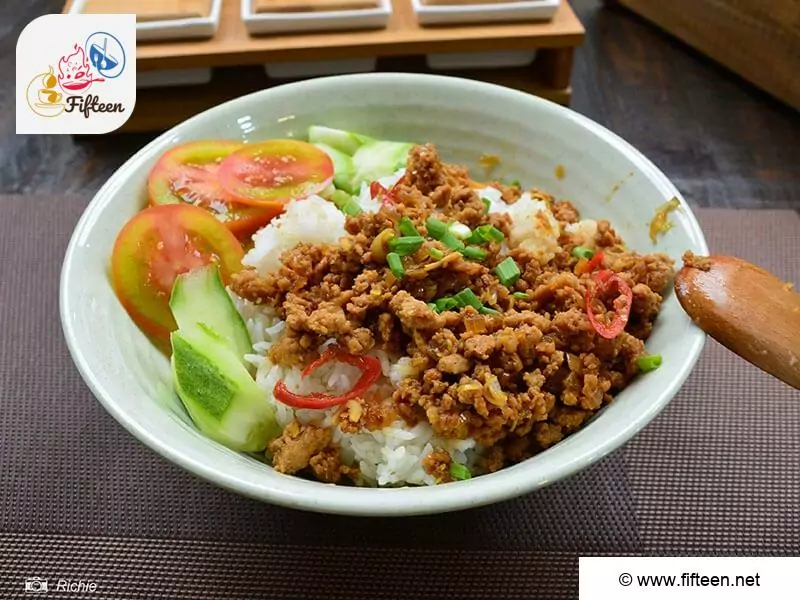
Thịt Băm Kho Recipe (Vietnamese Caramelized Pork Bowls)
Equipment
- Pan
- Wooden Spoon
Ingredients
- 1.1 pounds ground pork
- 1 coconut, for draining about 4 ounces of coconut water
- 0.7 ounces minced garlic
- 0.7 ounces minced shallots
- 0.7 ounces grated ginger
- 1 chili pepper
Spices and sauces
- 1.7 ounces fish sauce
- 1 teaspoon salt
- 1 teaspoon brown sugar
- 2 teaspoons ground pepper
- 3 teaspoons soy sauce
- 3 teaspoons oyster sauce
- 5 teaspoons Vietnamese caramel sauce (Nước Màu)
Instructions
- Use a knife or the sharp end of scissors to pierce through one of the coconut eyes on top. Drain the coconut water.
- Heat olive oil in a pan, fry garlic and shallots until fragrant. Add ginger and chili pepper, stir for 1-2 minutes until aromatic. Add ground pork and stir well.
- Pour in the coconut water and season the mixture with salt, brown sugar, caramel sauce, soy sauce, oyster sauce, ground pepper, and fish sauce. Stir well.
- Simmer your pork in the coconut juice over low heat for 10 minutes or until the sauce slightly thickens.
- Once the pork is tender, top with scallions. Serve over hot rice with boiled vegetables. Enjoy!
Video
Notes
- The cooking time is based on 4 servings of thịt băm kho.
- The nutrition facts below don’t include the accompanying rice or vegetables.
- To fully enjoy your thịt băm kho, you should master how to cook perfect rice using a rice cooker.
- You can also use the caramelized pork as bánh mì’s (Vietnamese baguette) filling.
- Feel free to add more or reduce the quantities of spices to fit your preference.
- You can replace ground pork with ground beef or even ground turkey. Note that the cooking time might differ.
- During cooking, the ground pork will gradually absorb the sauce, resulting in a truly flavorsome treat. However, if you cook it for too long, the sauce will dry out, and you might burn the dish.
- Covering the pan while simmering it’s a good idea to prevent the sauce from drying out too quickly.


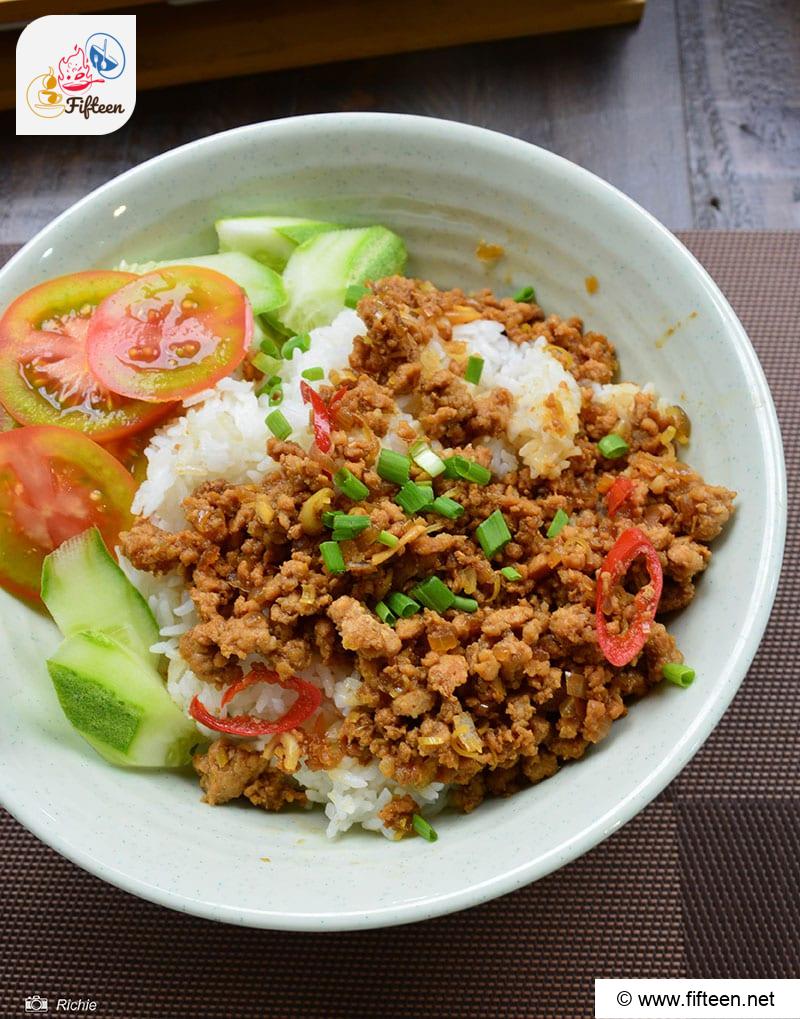
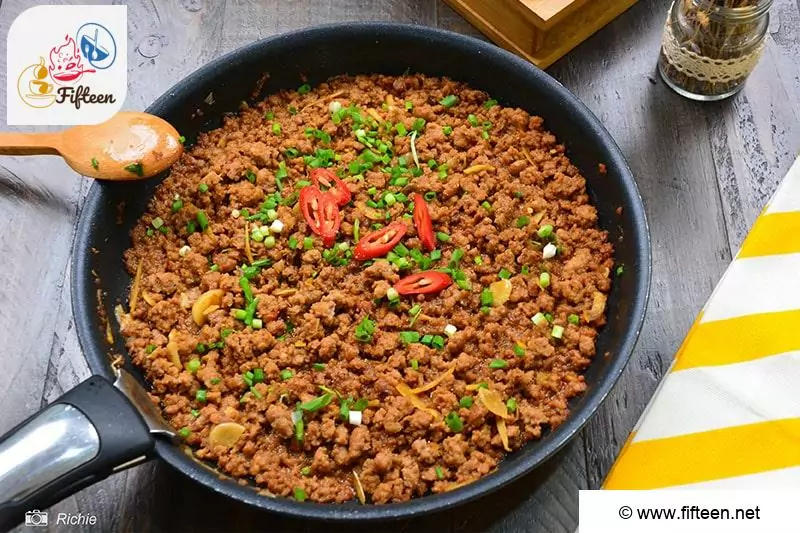
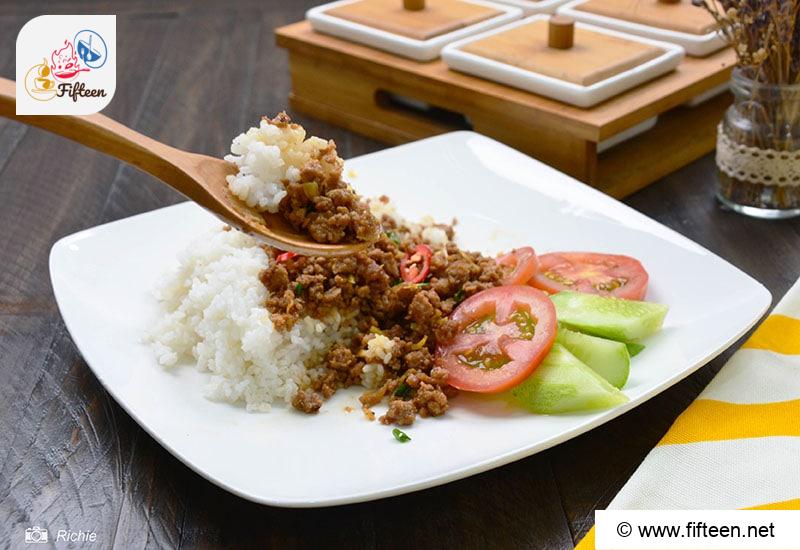
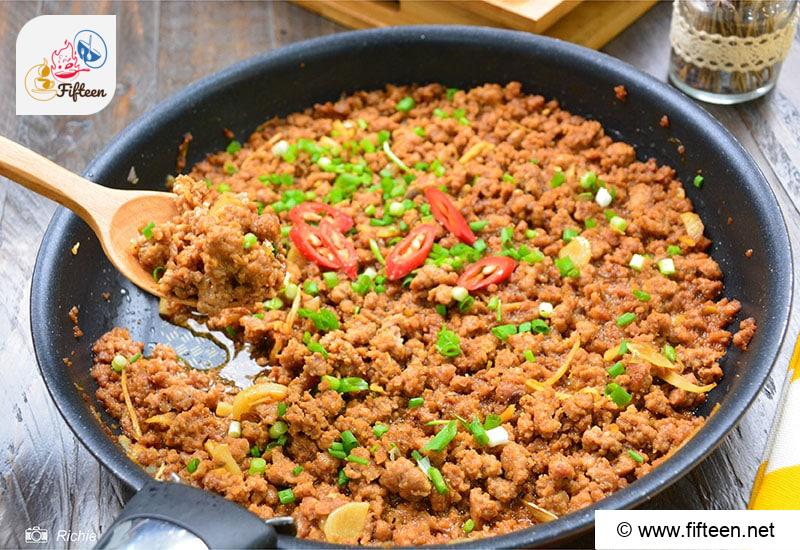
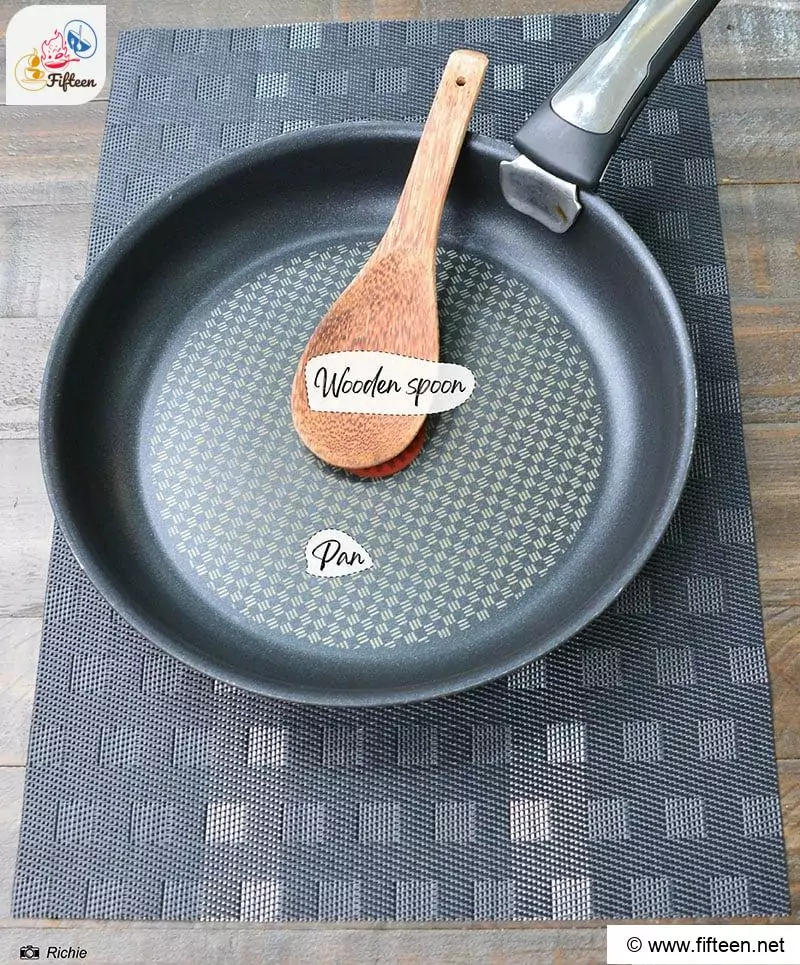
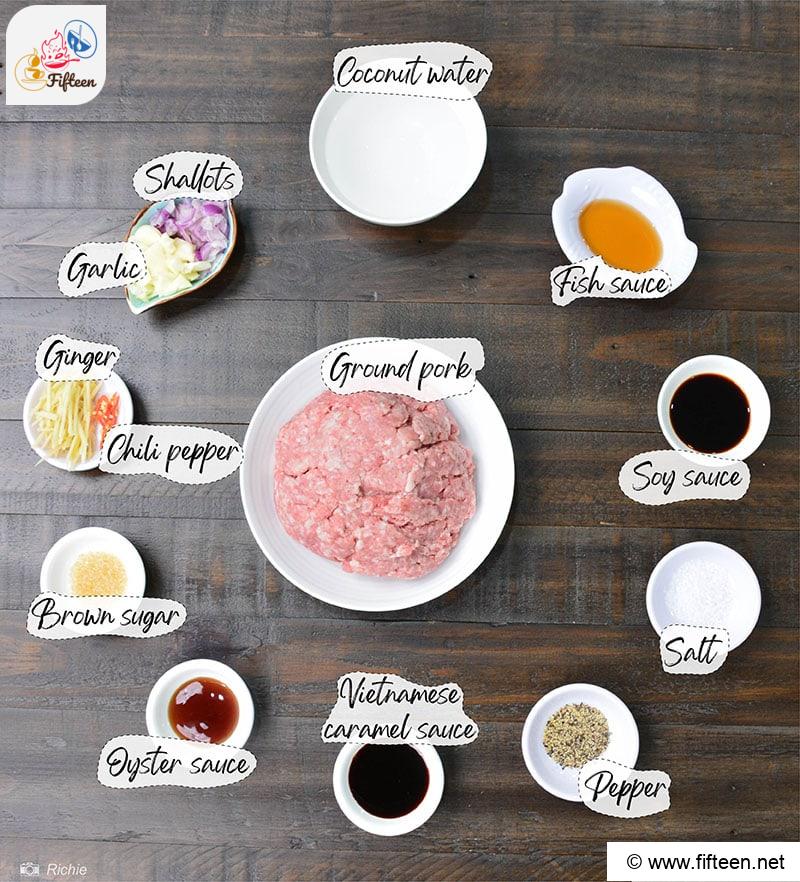
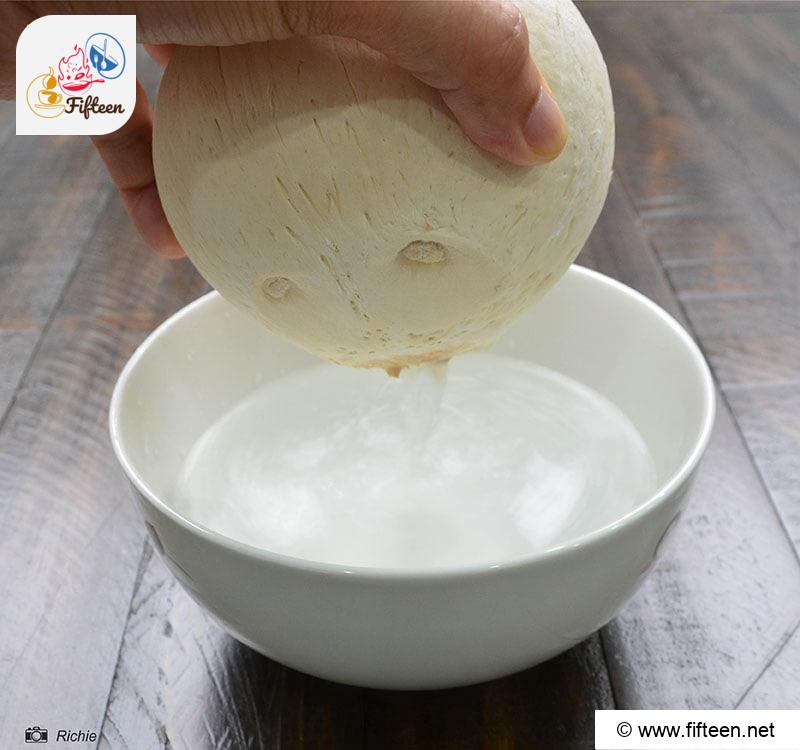
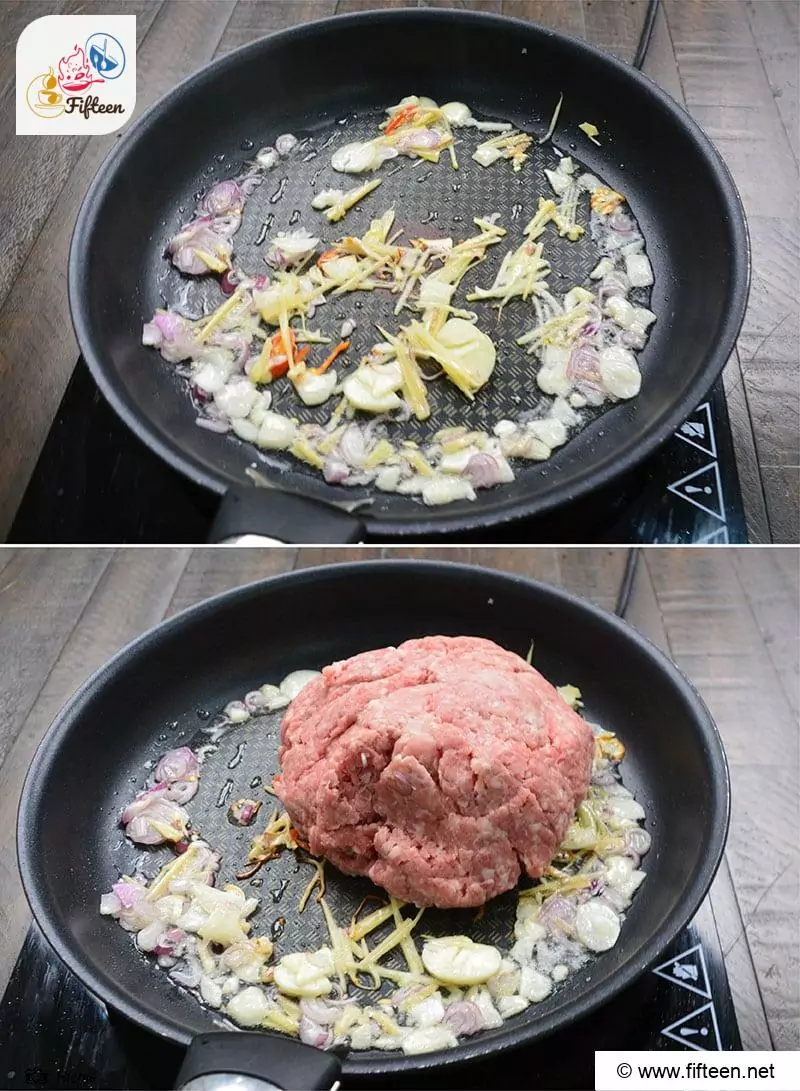
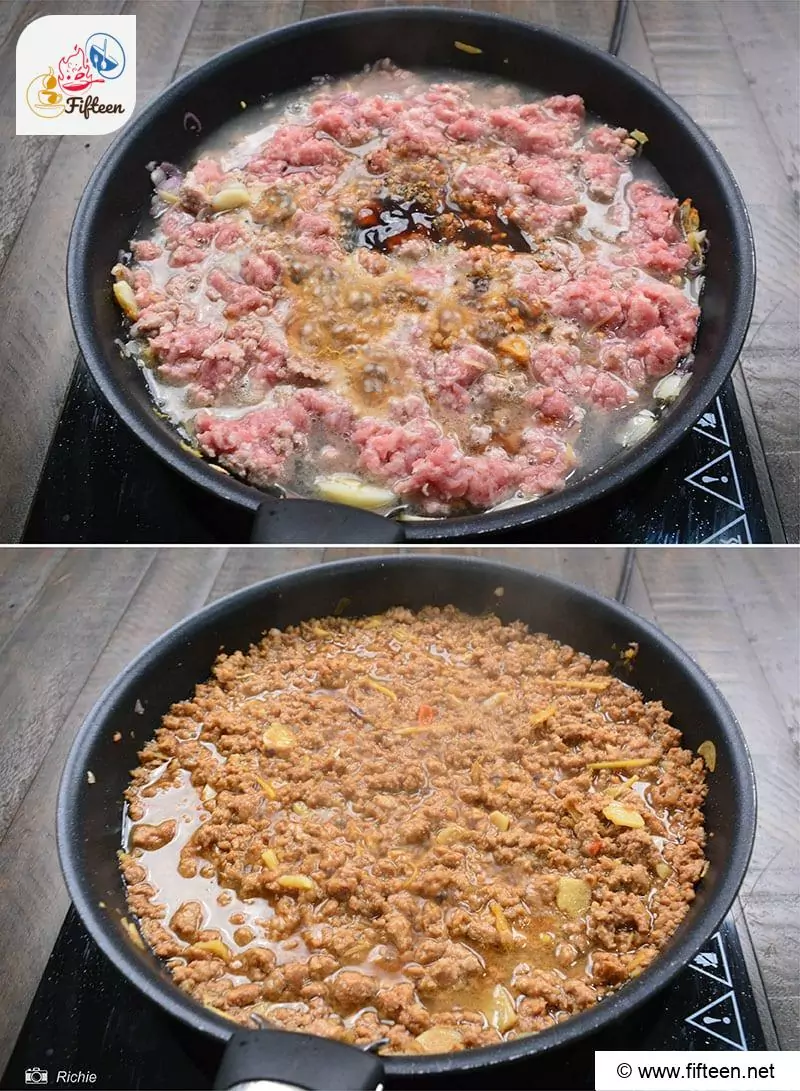
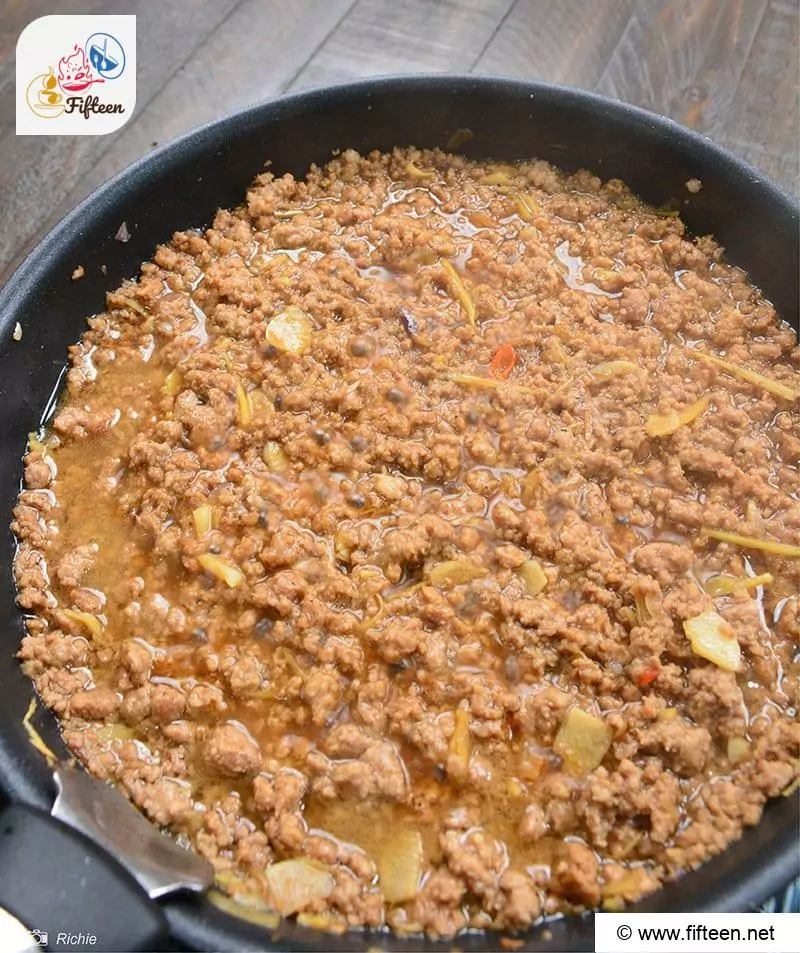
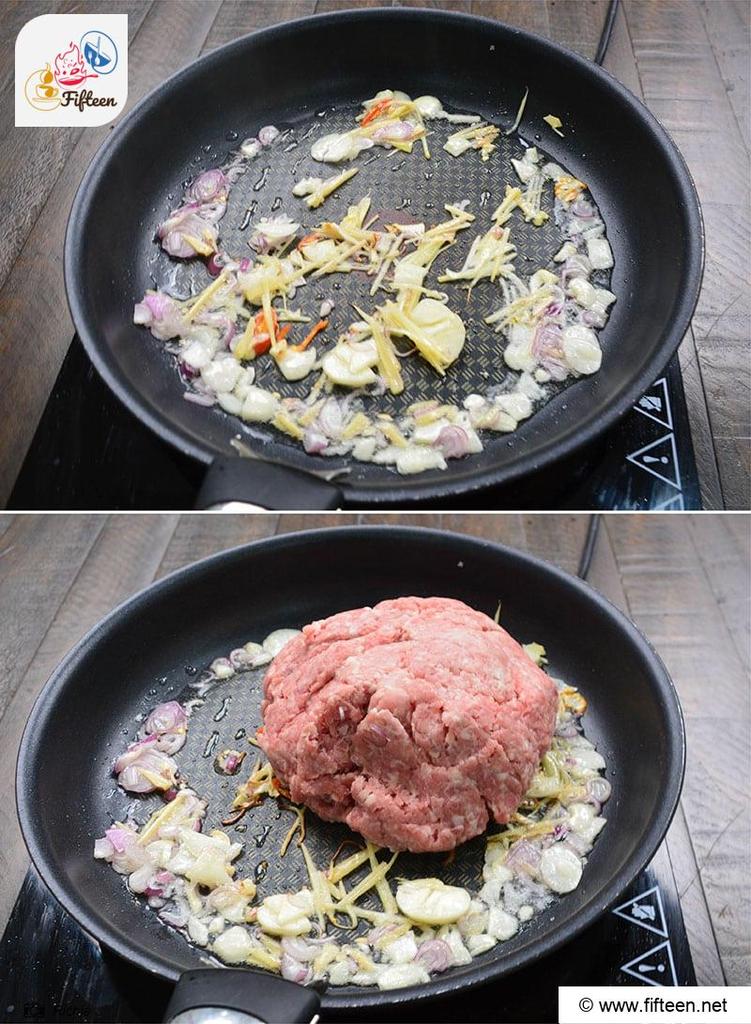
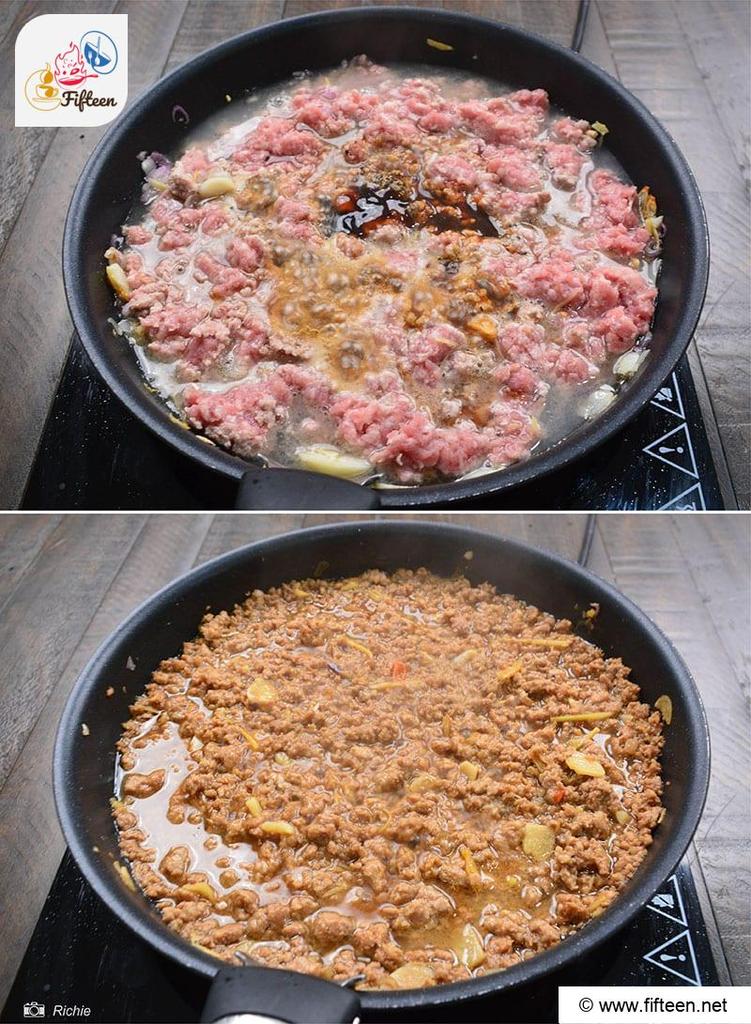
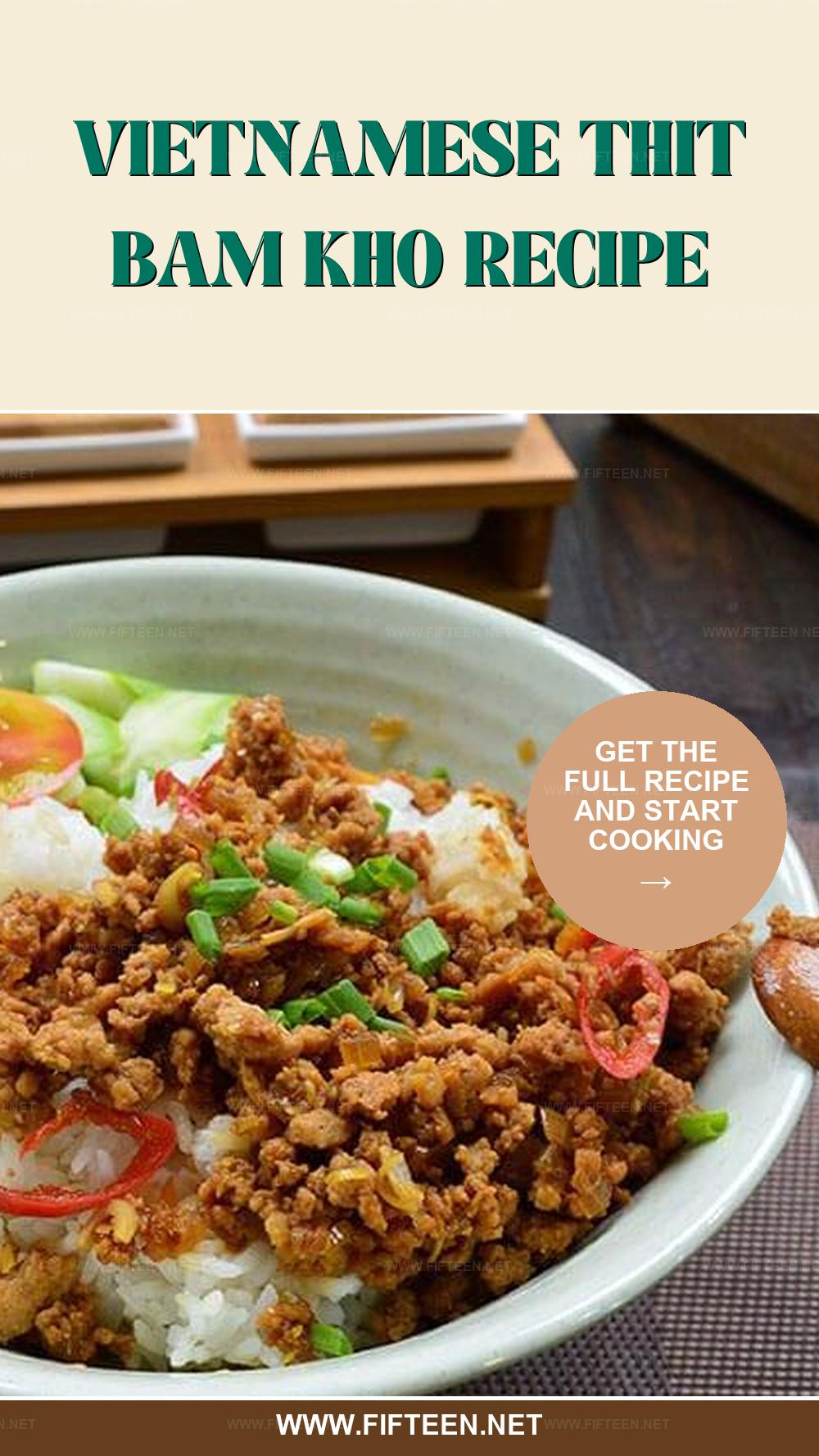
Richie
Content Writer
Expertise
Home Cooking, Meal Planning, Food Styling, Food Photography, Cooking-video Maker, Beverage Evaluation Expert
Education
Saigon Culinary Arts Centre, Ho Chi Minh City, Vietnam
Vietnam Australia Vocational School (VAAC), Hanoi, Vietnam
Richie, based in Ho Chi Minh City, Vietnam, is a dynamic Content Writer with a talent for capturing the essence of culinary art.
Richie specializes in creating visually appealing and tasty content, offering a new angle on Vietnamese and other culinary traditions. With a background in graphic design and a love for food styling and photography, he expertly combines beauty with food narratives, encouraging his audience to discover the culinary world through his imaginative perspective.